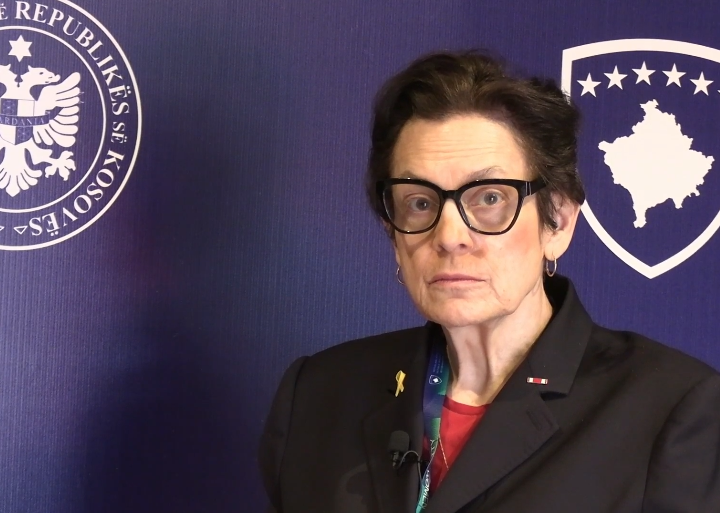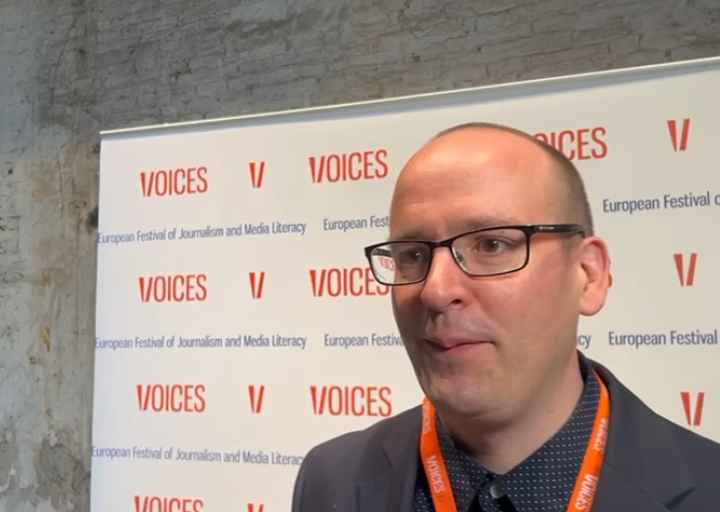
Director at the NATO Strategic Communications Centre of Excellence, Jānis Sārts, in an interview with The Geopost, spoke about the Russian influence in the Baltic countries as well as the war in Ukraine.
Sārts, among other things, said that in the Baltic countries they have seen many examples of Russian propaganda, through which Russia has tried to penetrate the information space.
” The way Russia has been evolving over the past decades in a way of a country that is ready to attack the neighbor countries and annex the territories and from the Baltic perspective being the members of NATO and EU clearly we have seen a lot of Russian propaganda trying to penetrate the information space.” he said.
He told the Geopost that Russia tries to spread its propaganda in the Baltic countries through economic and political corruption.
“Then, of course, they are using corruption and economic corrosion to get their agents of influence in the Baltics, both economically as well sometimes politically. And as I’ve said, they are also trying to use the Russian media for influence.” Sārts said.
Below you can find the full interview of Jānis Sārts for The Geopost:
The Geopost: How is it to be a neighbor with Russia? Can you tell us about Baltic perspective especially from Latvia?
Sārts: Well, that’s nothing new. It’s part of history being neighbors with Russia, with different historical experiences but these days really it is something that is worrying Baltic states for quite some time. The way Russia has been evolving over the past decades in a way of a country that is ready to attack the neighbor countries and annex the territories and from the Baltic perspective being the members of NATO and EU clearly we have seen a lot of Russian propaganda trying to penetrate the information space. Of course, one of the problems we see is that significant number of the population in Latvia and Estonia are Russian speakers. So, they are particularly targeted by the Russian propaganda but on the other side we’ve understood the problem for some time and have created some resilience within the society of the Russian propaganda.
The Geopost: How was the Russian influence in Baltic states and Latvia, in media and other sectors?
Sārts : Well, it has had some influence. As I’ve said, there is a proportion of Russian speakers in two of the Baltic states (in Latvia in particular). And Russia has tried to exercise influence over them. We’ve had, especially before the annexation of Crimea significant number of Russian TV stations, Russian radio stations that were transmitted in the Baltic and in Latvia which has transmitted the Russian false stories and Russian propaganda. But, over the last few years and very recently in particular, basically all of those Russian TVs have been banned from transmitting in Latvia. Of course, these days it’s not easy in the internet age to fully ban but, yes. Legally the Russian TV is banned in Latvia as is some of the written media as well.
The Geopost: How Putin makes trouble to the Baltic states, apart from political troubles? What are the other troubles that he can make in that region?
Sārts : From the perspective of kind of strategy Baltics is no different than other countries. What they’re trying to do, they’re trying to use the vulnerabilities that we have. So, they way they try to kind of influence the Baltics through basically exploiting the national factor. The Russian speakers are supposedly being suppressed, so therefore they have to unite around the kind of Russian narrative. First. Second, they say that the Baltics are failed states and trying to use the economic issues or social – economic issues as the proof of that. Of course, neglecting that in any of the Baltics life is by many factors, economic factors, so much better than it is in Russia.
Then, of course, they are using corruption and economic corrosion to get their agents of influence in the Baltics, both economically as well sometimes politically. And as I’ve said, they are also trying to use the Russian media for influence. What they want to do, they want to create Baltics as states that are supportive of Russian foreign policy which is impossible I think. But what they’re trying to do is actually damage the Baltics ability to kind of have a resilient society, resilient towards the Russian interests.
The Geopost: As we see, Latvia has helped a lot of Ukrainians in both moral and military ways. How does Latvia see the crisis in Ukraine after the invasion?
Sārts : Latvian society clearly has taken very much to heart what is happening in Ukraine and the understanding in the society is that unfortunately under Putin, Russia, if it succeeds in Ukraine they will try to continue this kind of policy in other countries. And of course, understanding within the Latvian society that the Baltics might be at risk as well. So, therefore there is very much an understanding that it is also very important war for the Baltics. One. Second, in the Baltic history, after the 1940 when the Russians occupied the Baltic states we had much of a very similar experiences by deportation, executions of people. There’s a lot of empathy for what is happening in Ukraine and therefore Latvia as you rightly said has had a lot of support to Ukraine from many angles. There has been military support, Latvia has received quite a significant number of Ukrainian refugees and also the Latvian society is supporting Ukraine both from a human terrain but also from a military perspective. Society, not the government, has raised funds for the military equipment that is donated to the Ukrainian military to help them fight the war.
The Geopost: Does European Union and NATO make enough to help, to support Ukrainian people? From the Balkan perspective we think that it is not enough. How do you see that?
Sārts : NATO and EU is a collective group of nations and nations do have different perspectives of what is happening and also their sense of emergency is very different. So it takes time to agree but what I clearly see is that the way Russia has waged the war, the way Russia has been communicating has been helping to create more and more NATOs and EU resolve as we’ve seen the Finland and Sweden have applied to join NATO and the applications have been accepted.
EU is strengthening their military capabilities. So, very much on the right direction. Is what is being done enough right now? Of course not. But one has to understand the complexities of international organizations. They can’t move, especially in the circumstances as they are in this war. They can’t move quick enough.
The Geopost: In Balkans we have Serbia who is very close with Russia and if we make parallels, Russia also uses Belarus to make influences and to make troubles to neighbors. How do you see these parallels? How is Russia using these states?
Sārts : By no means I’m Balkans expert so I would be very cautious in my judgement. But clearly, there is a difference between Serbia and Belarus. Belarus by and large has in many aspects lost lots of their sovereignty and is in a way a kind of annex to Russia these days. Especially when Lukashenko’s regime surely depends on the support from Putin. Serbia is different. As you rightly said they have had very good relations with Russia and have been used as index capacity in the Balkans by Russia. But of course, Serbia is also very much dependent on European Union which is not the case of Belarus. So, there are some parallels but there are certainly insignificant differences between Serbia and Belarus.
The Geopost: Do you think that Ukraine and Moldova will soon be part of NATO? What about Balkan states?
Sārts : It’s not a simple question because one thing is clear that Latvia was accepted to NATO only in 2004, many other countries including from the Balkan region. It’s not just saying that we accept a new country. It’s basically saying that we are ready to send our soldiers to die for that country. So it’s a significant commitment and to make that commitment it’s not only about nation’s military, it’s about the way the nation is. Whether the nation is ready to share the same values and principles. Whether the government, the way the nation is being run is something we understand and a way we would relate. So, very little corruption, very little nepotism and things like that. So, is it possible? I think it is possible. Is it near future? I don’t think it’s a near future.

 Vuletić for Geopost: Serbia has political scoundrels on both sides, partners in the West see that clearly
Vuletić for Geopost: Serbia has political scoundrels on both sides, partners in the West see that clearly  Spahovic for The Geopost: We cannot expect a pro-European government from Vucic, Milosevic’s ideas are still alive
Spahovic for The Geopost: We cannot expect a pro-European government from Vucic, Milosevic’s ideas are still alive  Lindberg: Russia jams GPS, uses Belarus and Wagner in hybrid warfare
Lindberg: Russia jams GPS, uses Belarus and Wagner in hybrid warfare  Tanya Domi: The West is soft with Vučić, Serbia is working against American interests in the Balkans
Tanya Domi: The West is soft with Vučić, Serbia is working against American interests in the Balkans  Kivimaki: Artificial information should be feared – disinformation should be combated by open source
Kivimaki: Artificial information should be feared – disinformation should be combated by open source  Bowler: Russia distorts everything for its own interests
Bowler: Russia distorts everything for its own interests